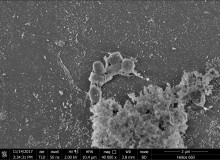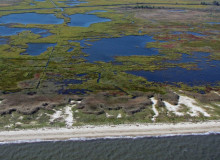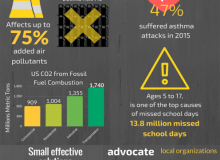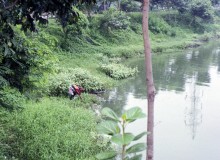pollution
Planet Forward Senior Correspondent | Reed College
There have been 9.1 billion tons of plastic produced since the 1950s — with no efficient way of getting rid of it. Luckily, a recent college graduate may have found a new solution to combat our plastic waste.
Planet Forward Correspondent | Northwestern University
The Chicago River has been used and abused for decades. Learn about the renaissance the river and its watershed is experiencing thanks to the cleanup efforts of the city and groups like Friends of the Chicago River.
University of Delaware
The health of the Delaware Bay is in question. Human activities, even those at the far reaches of a watershed, can deeply effect a bay's ecosystem. So how can we prevent more damage and work on restoration?
Northwestern University
The event marked four years after a state-appointed official made the ill-fated decision to switch Flint’s water source to the Flint River, which resulted in disastrous lead contamination.
George Washington University
Traffic congestion in urban cities have contributed a significant portion of greenhouse gases like CO2 to air pollution and that has direct correlation to an increase of health effects, especially asthma in children.
George Washington University
An overview on the impact of disposable, single-use plastic menstrual products on the environment and women's bodies, and ideas for products women should be using instead.
SUNY Oswego
Every month, Oceans Campus, an internship program located in Mossel Bay South Africa, goes down to Mossel Bay's point and cleans.
George Washington University
I recently traveled to the Mesoamerican Barrier Reef, and had my perspective completely changed about the importance of individual actions on the environment.
The George Washington University
I traveled this summer to Bangladesh with CARE. It quickly became clear that strong women are everywhere, and it would be important to keep an open mind during this trip.
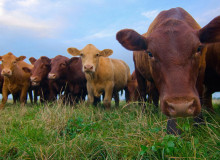
The UN-FAO reports 26% of the planet’s ice-free land is used for livestock grazing. (Ryan Thompson/U.S. Department of Agriculture)
State University College at Buffalo
It ain't pretty: Our food consumption habits are devastating the planet and contributing to world hunger. What can we do about it?

